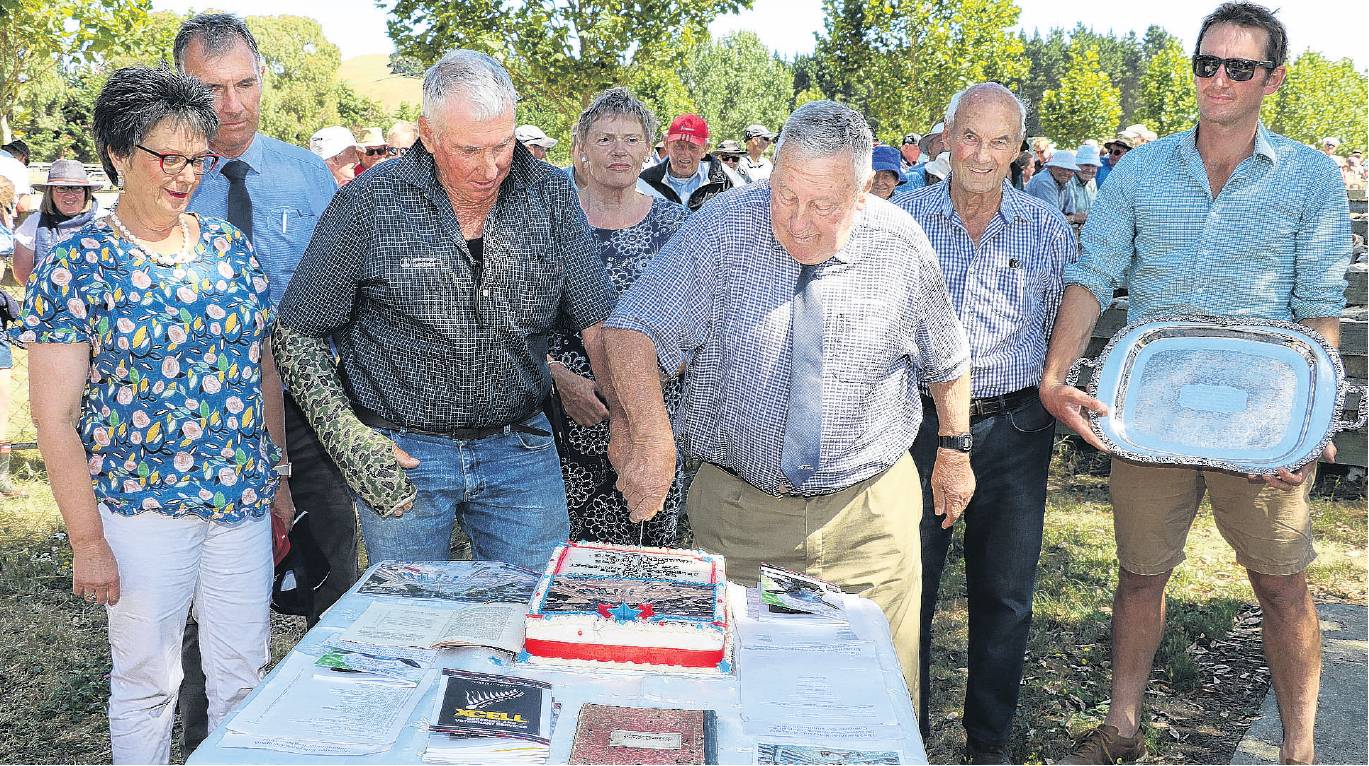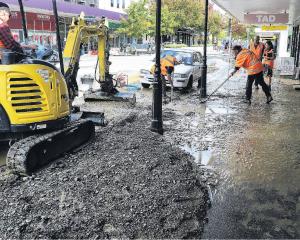
Following a brief ceremony and cake cutting to commemorate the long service given to the yards by the Hurunui rural community, the annual ewe sale began among the serious buyers.
Nearby groups of farmers, their wives and retired stock agents reminisced about the early days of the yards.
Tales of large family gatherings, very competitive farmers racing each other to be the first to get their mobs there, and the many wonderful meals catered each and every year by the members of the Hawarden Presbyterian Church abounded.
Ewe sale stalwart and former Hurunui Mayor Winton Dalley started attending the annual Hawarden ewe sale 45 years ago and says it is one of the last left in business.
‘‘We are still ticking along, all the other country ewe sales except for Sheffield have gone, their sale yards sold because the main sales are now in Christchurch.
‘‘But we’re still carrying on because as farmers we believe in our stock. It’s the quality of our breeding as we are producing Canterbury’s prime lambs.
‘‘Buyers and sellers come from as far afield as Marlborough and Mid› Canterbury to the sale.’’
The secret he said was the ewes were born and raised on the high country and that’s how they adapted well to grazing on the low lands of the Canterbury Plains.
Laurie O’Carroll, a direct descendant of an original shareholder of the Hawarden Saleyards company, remembers the fun of driving the mobs of sheep from the farms to the saleyards before trucks were used.
‘‘Those old farmers were very competitive in those days, they would try to beat each other to be first into the drafting pens.’’
The stock was first driven down the roads to the yards, then following the sale the new owners would drive them down through the village to the railhead and then ship them away. “Many gardens suffered from the sheep and cows moved this way,’’ Laurie said.
Former stock agent Fred Fowler said there used to be nine other ewe fairs in Canterbury, but now there were just two.
‘‘It is a sign of the times, the new yards in Christchurch and the change to different farming practices have seen the numbers of sheep drop in recent years. There was always a lot of banter between the farmers and the sales agents at the Hawarden sale. The Hurunui produced the best fine wool sheep in the country, the Corriedales bred here were sought after by the farmers on the flat lands,’’ he said.
Scargill Valley farmer David Belton (WP Belton Ltd) said his family had been selling at the ewe sale for 50 consecutive years. He says the descendants of those traditional farmers who started the saleyards company all those years ago are still coming back each year to the sale.
‘‘Traditionally it’s a big day out for everyone, a chance to meet old friends and family.’’


















